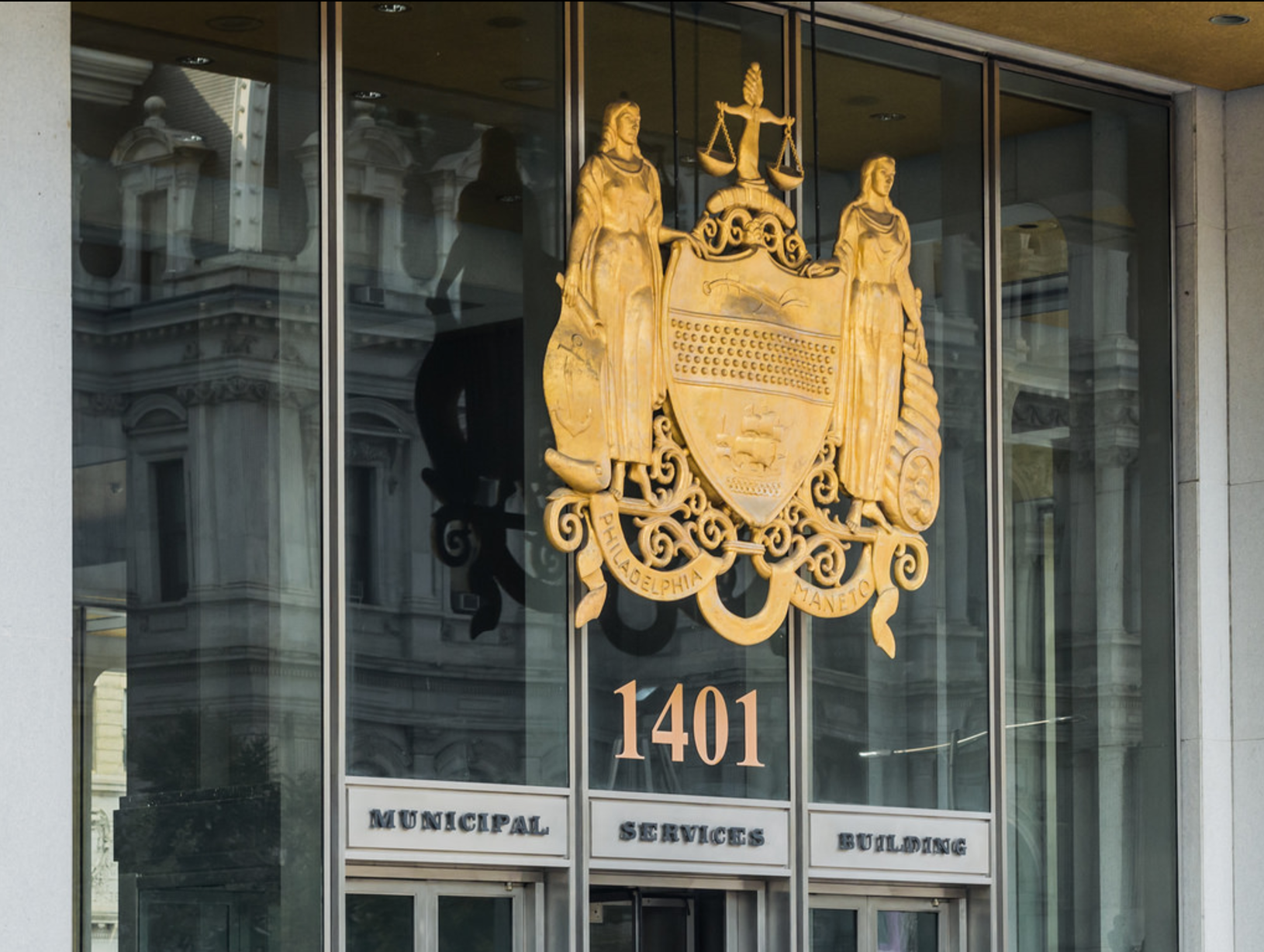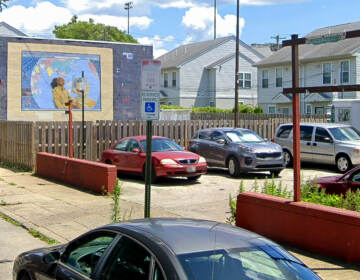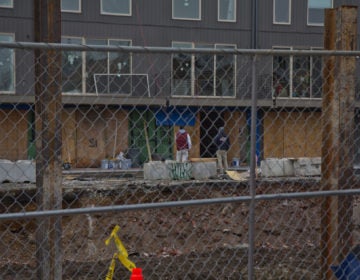Ballot Question: Should Philadelphia have a Community Reinvestment Commission?

On Tuesday voters will decide whether they like the sound of amending the city’s charter to create the Philadelphia Community Reinvestment Commission.
This new commission is the brainchild of City Council President Darrell Clarke, who wants to see better coordination between private, public, nonprofit and organized labor interests in the city. It would be charged with making recommendations to City Council and the mayor about reinvestment strategies that coordinate and leverage resources across sectors.
Skeptics argue that a new commission is unnecessary and that a task force or working group could be assembled without a charter change. Conversations and connections between the city’s anchor institutions, big developers, and powerful labor unions are already plenty robust, they argue, and some would say they are too robust.
May 16, 2017 Ballot Question #2:
Shall The Philadelphia Home Rule Charter be amended to provide for the creation of a Philadelphia Community Reinvestment Commission to be charged with recommending coordinated community reinvestment strategies for the City of Philadelphia by identifying opportunities for public, private, and philanthropic entities to collaborate and leverage their resources for the public good?
Plain English Statement: This proposed amendment to the Home Rule Charter would establish a new Commission, the Philadelphia Community Reinvestment Commission. The Commission would be composed of 21 members: 12 members appointed by the Mayor and confirmed by Council; three Councilmembers, selected by Council; the Council President; and five additional City officials, by virtue of the positions in City government they hold. The Commission would develop and recommend to the Mayor and Council coordinated community reinvestment strategies to leverage private, public and philanthropic resources for the public good . The Commission would be authorized to establish committees comprised of members and others selected by the Commission, to assist in executing its mission.
But for Clarke the Philadelphia Community Reinvestment Commission is a necessary change that will ensure regular contact between the city’s economic development movers and shakers.
“All these groups have people working on various aspects of what we are trying to do,” Clarke said. “The problem is they aren’t working together.”
The Philadelphia Community Reinvestment Commission would be comprised of 21 members. The mayor would be responsible for filling 12 of the seats. Seven of those mayoral appointees are reserved for representatives from organized labor, a bank authorized to hold city deposits, a community development financial institution (CDFI), a private foundation, an educational or medical institution, a citywide anti-poverty organization, and a citywide business association.
City council members would represent three more seats on the commission and the council president’s office another. The directors of finance, commerce, and planning and development are included, as is the city treasurer and a member of the administration who is charged with anti-poverty efforts.
None of the commission members would be offered compensation and Clarke says there won’t be any need for an increase in budget or staff to handle any additional work.
“I’m not looking to hire anybody to play a role in it,” says Clarke. “I don’t foresee any need to increase our budget. We have a significant number of people working in the government to work on economic development. Why not just have them sit at the table with individuals who have the initiative on the private sector side and the institutional side?”
Response to Clarke’s proposal has been muted. Few of the stakeholders PlanPhilly reached out to expressed enthusiasm, although no one declared outright opposition either. Several politicians, business leaders, and civic activists admitted that they hadn’t been giving the matter much thought.
The Committee of Seventy, for example, is not studying and making an endorsement on the ballot question about the commission, choosing instead to focus on the ballot question about changing the city’s procurement system.
“We appreciate the thought that goes into multi-sector collaboration but many of our members already engage in public-private partnerships,” says Yvette A. Núñez, Vice-President for Civic Affairs at the Philadelphia Chamber of Commerce. “In the resolution, the definition of duties is very broadly defined. We wanted it to expressly state the scope of this advisory committee and its duties and powers while recognizing that at least our members and the private sector are already engaging in this work.”
Among the Chamber’s concerns is that the Philadelphia code already includes a Philadelphia Community Reinvestment Commission. But Clarke says that this body, created by legislation introduced by then-city councilman Wilson Goode Jr. in 2000, was never put to the voters and so it was never legally created. (Although newspaper articles from back then do note that it met at least once.)
Goode’s Philadelphia Community Reinvestment Commission’s was meant to battle the fallout from redlining and other racist public policies that historically limited investment and other opportunities in black neighborhoods. Composed largely of actors in the local financial sector along with city policymakers, the old commission was meant to shepherd Community Development Financial Institutions into being. Then-mayor John Street promised $5 million for its operations (adjusted for inflation that’s more than $7.2 million today).
Despite the fact that Goode’s commission was never put on a ballot, the changes it meant to provoke largely came about anyway. The city now enjoys a healthy CDFI sector, including the nationally-recognized Reinvestment Fund.
The fact that Goode’s aims were at least partly met without a voter-approved commission seems to strengthen the argument that Tuesday’s vote on Clarke’s Philadelphia Community Reinvestment Commission is unnecessary.
“There may be a good reason to do this, but I’m just not sure what it is,” says John Kromer, the director of housing under Mayors Ed Rendell and John Street. “Maybe this is a really good idea, but if so why not just do it? Why change the charter?”
Philadelphia’s Director of Planning and Development, Anne Fadullon, offered the initiative measured praise. She says there are probably three or four different entities—including the Commerce Department, PIDC, and the Urban Affairs Coalition—currently having discussions like the ones Clarke wants the commission to hold. Fadullon said centralizing such conversations wouldn’t be a bad idea and she understands why formalizing might prove helpful.
“I think it would be good for the private sector to be a little more involved with the public sector in figuring out how to deal with economic growth issues in Philadelphia,” she said.
For his part, Clarke says he doesn’t want to have too much sway over how the commission is structured, assuming it passes on Tuesday. But there are a few ideas he’s particularly excited about, citing a Cleveland collaboration between the city and anchor institutions that created a hydroponic greenhouse in a disinvested corner of the city. For the labor unions, he notes that they have power in how they invest their pension dollars and that’s there’s no limit to how such resources could be combined with private capital and leveraged to bring growth to the neighborhoods.
Skeptics don’t argue with the ends Clarke is promoting, but they question whether the Philadelphia Community Reinvestment Commission is the best means to get there.
“The more time an [agency manager] spends in meetings with advisory committees, task forces, working groups the less time there is to engage in work that matters,” says Kromer. The current administration may have found a way to have it both ways and engage with a group like this and also be productive. But my experience with commissions like this has been largely negative.”
WHYY is your source for fact-based, in-depth journalism and information. As a nonprofit organization, we rely on financial support from readers like you. Please give today.






